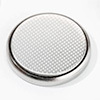| Jun 14, 2023 |
|
|
|
(Nanowerk News) In a discovery that could reduce or even eliminate the use of cobalt – which is often mined using child labor – in the batteries that power electric cars and other products, scientists at the University of California, Irvine have developed a long-lasting alternative made with nickel.
|
|
“Nickel doesn’t have child labor issues,” said Huolin Xin, the UCI professor of physics & astronomy whose team devised the method, which could usher in a new, less controversial generation of lithium-ion batteries. Until now, nickel wasn’t a practical substitute because large amounts of it were required to create lithium batteries, he said. And the metal’s cost keeps climbing.
|
|
To become an economically viable alternative to cobalt, nickel-based batteries needed to use as little nickel as possible. |
|
“We’re the first group to start going in a low-nickel direction,” said Xin, whose team published its findings in the journal Nature Energy (“Long-life lithium-ion batteries realized by low-Ni, Co-free cathode chemistry”). “In a previous study by my group, we came up with a novel solution to fully eliminate cobalt. But that formulation still relied on a lot of nickel.”
|
|
To solve that problem, Xin’s team spent three years devising a process called “complex concentrated doping” that enabled the scientists to alter the key chemical formula in lithium-ion batteries as easily as one might adjust seasonings in a recipe.
|
|
The doping process, Xin explained, eliminates the need for cobalt in commercial components critical for lithium-ion battery functioning and replaces it with nickel.
|
|
“Doping also increases the efficiency of nickel,” said Xin, which means EV batteries now require less nickel to work – something that will help make the metal a more attractive alternative to cobalt-based batteries.
|
|
Xin said he thinks the new nickel chemistry will quickly start transforming the lithium-ion battery industry. Already, he said, electric vehicle companies are planning to take his team’s published results and replicate them.
|
|
“EV makers are very excited about low-nickel batteries, and a lot of EV companies want to validate this technique,” Xin said. “They want to do safety tests.”
|
